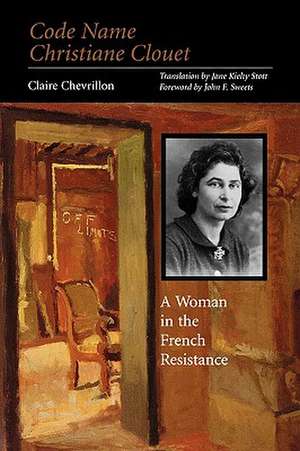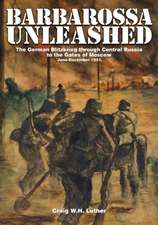Code Name Christiane Clouet
Autor Claire Chevrillon John F. Sweets Traducere de Jane K. Stotten Limba Engleză Paperback – 28 feb 2009
Chevrillon's memoir gives abundant detail about what daily life was like for the French elite during the German occupation. Her father, a scholar and literary critic who had been raised by his celebrated uncle, philosopher-historian Hippolyte Taine, put her in contact with the upper circles of French culture. Her mother, who was from a large, assimilated Jewish family, gave her first-hand knowledge of the persecution of French Jews. Her story vividly portrays the wartime experience of private lives and public events, including the tedious backroom work of the Resistance and four months she spent captive in Paris's dreaded Fresnes prison.
The way Chevrillon tells her story is almost as remarkable as the story itself. Evenhandedly and without embellishment, she relives the days of the occupation, the arrest and deportation of her prominent Jewish relatives, her own role in the underground network, and the eventual liberation of France. The straightforward, even brisk, style with which Chevrillon writes, together with the breadth of her experience and her extensive contacts in French society, give a perspective not often encountered in stories of the World War II underground.
Perhaps most important, Chevrillon demonstrates that heroism can take quiet, hidden forms.
Preț: 114.44 lei
Nou
Puncte Express: 172
Preț estimativ în valută:
21.90€ • 22.69$ • 18.28£
21.90€ • 22.69$ • 18.28£
Carte disponibilă
Livrare economică 01-15 martie
Preluare comenzi: 021 569.72.76
Specificații
ISBN-13: 9780890966297
ISBN-10: 089096629X
Pagini: 208
Dimensiuni: 155 x 229 x 18 mm
Greutate: 0.41 kg
Editura: Texas A&M University Press
ISBN-10: 089096629X
Pagini: 208
Dimensiuni: 155 x 229 x 18 mm
Greutate: 0.41 kg
Editura: Texas A&M University Press
Textul de pe ultima copertă
In 1943 Claire Chevrillon (code named Christiane Clouet) became head of the Code Service in Paris for General de Gaulle's Delegation and served as the main link in the lines of communication flowing between the Free French Government in London and the Delegation (Provisional Government) in France. It was Chevrillon and her team who coded many of the telegrams in Is Paris Burning? Until now, little has been published about this unglamorous but vital aspect of the French Resistance. Chevrillon's memoir gives abundant detail about what daily life was like for the French elite during the German occupation. Her father, a scholar and literary critic who had been raised by his celebrated uncle, philosopher-historian Hippolyte Taine, put her in contact with the upper circles of French culture. Her mother, who was from a large, assimilated Jewish family, gave her firsthand knowledge of the persecution of French Jews. Her story vividly portrays the wartime experience of private lives and public events, including the tedious backroom work of the Resistance and four months she spent captive in Paris's dreaded Fresnes prison.








